How to Help a Senior Dog Not Sleeping at Night: Everything You Need to Know!
Is your senior dog struggling to sleep at night?
Learn how to fix their sleep cycle with these proven tips and tricks.
Discover common causes like cognitive decline, nighttime anxiety, and chronic pain, and some solutions so your beloved dog gets a good night’s sleep.
Disclaimer: This article is intended for informational purposes only and does not constitute medical advice. Always consult your veterinarian for diagnosis and treatment of any health concerns regarding your pet.
Introduction: Why Your Senior Dog’s Sleep Matters
Is your senior dog not sleeping at night?
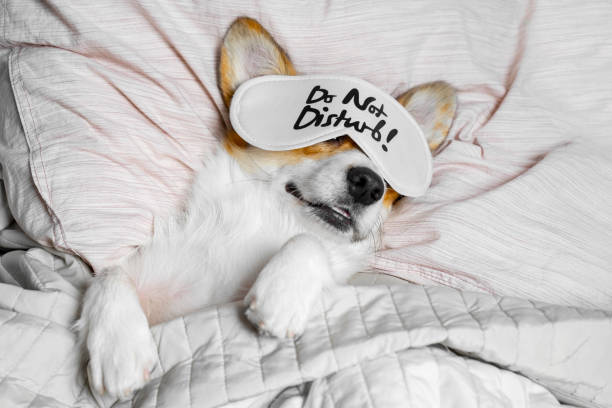
You’re not alone. Many owners are dealing with their older dogs becoming restless or anxious after the lights go out.
Whether it’s pacing, barking or just plain won’t settle, a senior dog’s sleep issues can affect the whole household. But what’s causing it and what can you do about it?
In this article, we’ll cover the common reasons why senior dogs can’t sleep and offer solutions so you and your furry friend can sleep peacefully again.
Why Senior Dogs Can’t Sleep
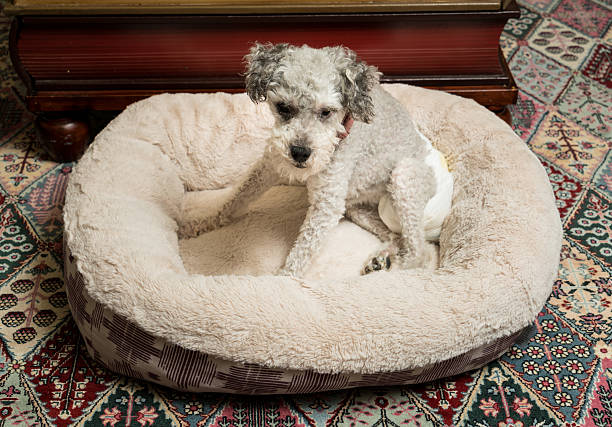
As dogs age their sleep patterns change; older dogs encounter difficulty sleeping. It’s normal but frustrating for owners.
The reasons can vary from age-related cognitive decline to anxiety and medical conditions.
Cognitive Decline in Senior Dogs
One of the most common reasons senior dogs struggle with sleep is cognitive decline syndrome (CDS) commonly known as canine cognitive dysfunction syndrome.
This is like dementia in humans and causes disorientation, confusion and can’t settle at night. Your calm dog may suddenly pace or bark in the middle of the night.
Nighttime Anxiety in Senior Dogs
Another big one is nighttime anxiety. As dogs age, they may feel less secure in the dark, causing some sleep problems, especially if their eyesight or hearing has declined. This anxiety can cause pacing or whining.
Senior Dog Sleep Changes
As your older dog ages, you may notice they’re sleeping more or more restless at night; this is normal but can be confusing for pet parents.
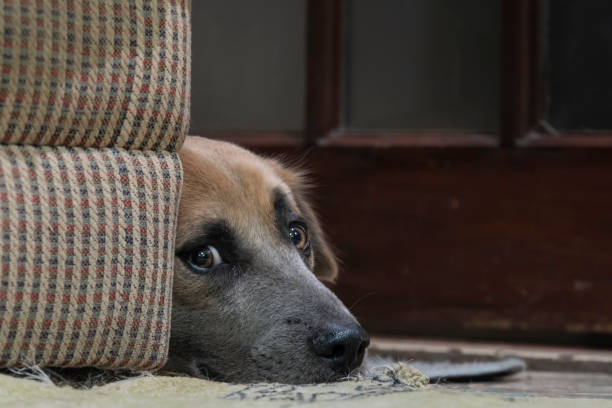
Young dogs are full of energy and ready to play but as they enter their golden years they slow down. This means more napping during the day which can make them have difficulty sleeping at night. Knowing these changes is the first step to keeping your senior pets have a good night's sleep, and happy and healthy.
There are many reasons why your canine companions change their sleep patterns. From aching joints to age-related cognitive decline many factors can make it harder for them to sleep.
But with a little understanding, consistent nighttime routine, and the right care you can help them feel more comfortable and rested as they age, and you may able to prevent them from getting disrupted sleep.
Why Do Senior Pets Sleep Differently?
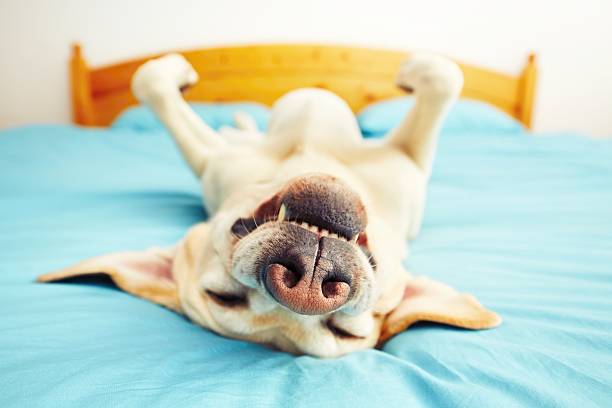
As dogs age they need more sleep to recover from daily activities but joint pain or cognitive changes can make it harder to rest.
Discomfort can prevent them from sleeping well, while conditions like Cognitive Dysfunction Syndrome (Canine Cognitive Dysfunction) can cause confusion and nighttime restlessness in your senior pet.
How Aging Affects Your Dog’s Sleep Cycle?

Older dogs sleep more but their sleep quality suffers, and the reason for the disrupted sleep.
They sleep in fits and starts, waking up more at night due to physical discomfort or changes in hormone levels and metabolism. Some furry seniors can tolerate pain medication that may help them fall asleep, but not all of them can be treated with veterinary medicine.
Physical Changes That Disrupt Sleep
Arthritis makes it hard for older dogs to get comfortable so they wake up more.
Health conditions like heart disease or respiratory problems, urinary tract infections, and chronic pain can also disrupt sleep, so regular vet checks and physical exam are important to get a definitive diagnosis as well.
Mental Changes That Affect Sleep
Cognitive decline including CDS can cause confusion and anxiety which can further disrupt sleep. In such cases, your furry seniors may need your emotional support, pain medication, and nighttime routine to address this concern.
Mental stimulation during the day like games, and puzzles can help keep your dog’s mind sharp and reduce nighttime restlessness.
The Sleep-Wake Cycle in Senior Dogs
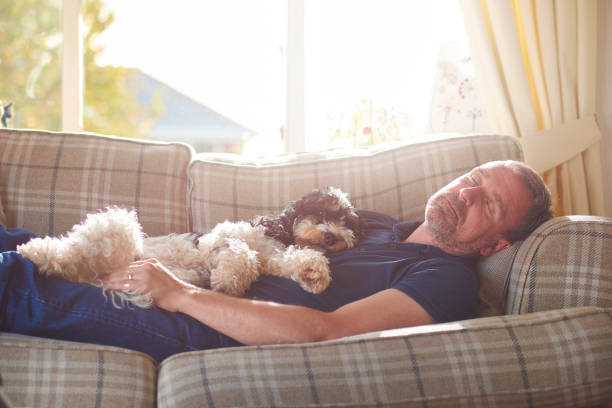
Senior dogs nap more during the day because of low energy but this can make it harder for them to sleep at night.
Finding the right balance between activity and rest is key, and planning their nighttime routine would be beneficial as well.
Why Do Senior Dogs Sleep More During the Day?
Older dogs get tired more easily and need more rest. Health issues or pain can also cause more napping but too much daytime sleep can make it harder to settle at night.
What Causes Nighttime Restlessness?
Discomfort from conditions like arthritis, separation anxiety, or confusion makes older dogs restless at night. To help provide a calming sleep environment with a comfortable dog's bed, soft lighting, background noise, and soothing music.
How Cognitive Decline Affects Sleep

As lovely dog ages, they can develop cognitive decline syndrome (CDS) which has a big impact on their sleep patterns.
CDS disrupts the sleep wake cycle and causes more waking during the night.
Cognitive Decline Symptoms
Dogs with CDS will show signs such as disorientation, forgetting basic commands, or becoming more anxious, especially at night. These symptoms get worse as the night goes on, and could indicate possible medical causes.
In such cases, our furry seniors will surely appreciate emotional support for their well-being. But to address this concern, a definitive diagnosis from a family veterinarian will surely help in addressing this matter.
Managing Cognitive Decline
To help your canine companions with CDS, have a consistent nighttime routine and make sure they have a familiar sleeping area to ensure that they will get a good night's sleep.
Keep lights dim and provide gentle background noise like a fan or white noise machine; it will surely help your older dog restore their sleep patterns.
Nighttime Anxiety: Causes and Cures
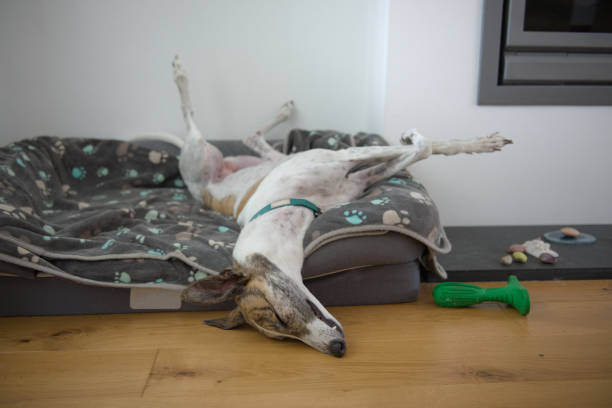
Many older dogs develop nighttime anxiety, or having to experience anxiety which means they can’t sleep, bark, or pace at night, which is causing them to have trouble sleeping as well as restless nights.
This anxiety is linked to aging senses such as vision and hearing loss, and even medical issues making the night feel unfamiliar and scary.
How to Recognize Anxiety in Your Senior Dog
Look for signs like restlessness, whining or being unusually close to you at night. Furry seniors with anxiety will also become more clingy at night.
Simple Ways to Reduce Anxiety
Give your dog a calming sleep environment by using a night light or playing soft background noise to ease their fears to address their concern about their trouble sleeping.
Having a quiet time before bed can also help in eliminating restless nights. Apart from that, you may also want to get your furry senior a comfortable dog's bed that will help them get their comfortable sleep and even natural supplements provided by your family veterinarian.
The Importance of a Consistent Nighttime Routine
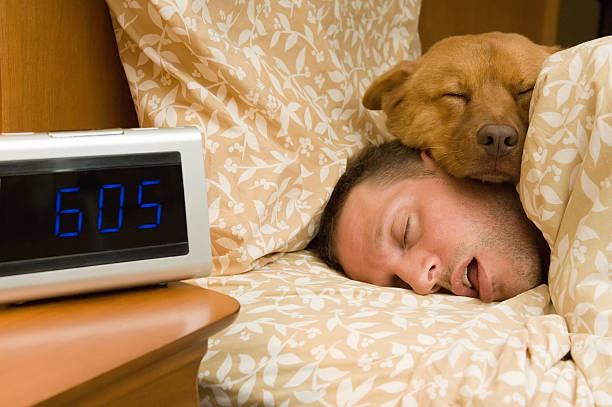
For older dogs, a consistent nighttime routine is key to better sleep.
A predictable routine will reassure your dog and make them feel secure at night.
How to Create a Calming Routine
Schedule your elderly dog's prescription diet, potty breaks, and sleep time the same time every night.
A quiet time activity like gentle petting or a short walk can signal bedtime is near.
Stick to a Bedtime Schedule
Once you have the routine in place stick to it. This will help regulate your dog’s internal clock and improve their sleep, and sleep wake cycle over time.
How to Create the Perfect Sleep Environment for Your Senior Dog

A comfortable, quiet, and dark environment can make all the difference for your older dog.
Setting up a sleep-friendly space will help them fall asleep faster and stay asleep longer.
Adjust the Room Temperature
Older dogs have trouble getting better sleep; some need to regulate body temperature.
Make sure the room is at a comfortable temperature not too hot or too cold so your dog doesn’t wake up due to discomfort, and to help them regulate body temperature.
Choose the Right Bed and Blankets
An orthopedic bed will support your dog’s aging joints and add extra comfort. A soft, washable blanket will make the space cozier and sleepier.
Noise and Light and Your Dog’s Sleep

Dogs especially older ones are sensitive to changes in their environment and too much noise or light can disrupt their ability to sleep through the night.
How Background Noise Helps
Use white noise machines or a quiet fan to create soothing sounds that will block out outside noises like traffic or other dogs barking.
Use a Night Light to Calm Your Dog
If your senior dog is more anxious in the dark a dim night light will help them feel more secure and not disoriented if they wake up at night.
Senior Dog Waking Up at Night for Potty Breaks

As dogs age their bladders become less reliable and they will wake up more frequently at night to go outside, and in some cases, have accidents. This will disrupt both their and your sleep.
Minimize Nighttime Waking
One way to reduce nighttime potty breaks is to limit water intake an hour before bedtime, and by sticking to their prescription diet.
You can also make sure your dog has a final walk before bedtime.
Pee Pads for Older Dogs
If your dog still wakes up frequently consider using pee pads in their sleeping area. This will allow them to go potty without having to go outside and minimize disruption to their sleep.
Sleep Cycles in Senior Dogs

As dogs age their sleep cycles change. Senior dogs will have shorter periods of deep sleep and more frequent wakefulness.
What’s Your Dog’s Natural Sleep Pattern
It’s important to realize older dogs may just sleep lighter and wake up more often due to changes in their sleep cycle.
By knowing this, it will help you manage your expectations and find solutions that work for them.
How to Improve Sleep
To sleep better have a comfortable environment, a routine, and minimal disruptions at night.
Conclusion: Senior Dog Sleep Better
If your senior dog isn’t sleeping at night it’s stressful for both of you.

But knowing the cause—cognitive dysfunction, anxiety, or medical issues—will help you find the solution.
By creating a calm environment, sticking to the routine, and seeking professional help when needed you can get your dog sleeping peacefully again.
In the end, the love you have for your senior dog is unmatched, and their happiness is your top priority. With a little guidance and support, you can give them the care they need to thrive. Let’s keep this journey together.
FAQs About Senior Dog Sleep Issues
1. Why isn’t my senior dog sleeping through the night?
Your senior dog is experiencing cognitive decline, anxiety or discomfort from aging. A vet can help diagnose.
2. How can I help my senior dog sleep better?
Stick to a bedtime routine, create a sleep friendly environment and consider a night light or white noise.
3. Is it normal for my senior dog to pace at night?
Yes, pacing can be a sign of anxiety or cognitive dysfunction. See a vet to rule out anything serious.
4. Can diet affect my dog’s sleep?
Yes, a balanced diet and proper nutrition will help your dog sleep better especially if age related issues are affecting their digestion or energy levels.
5. Is it normal for senior dogs to wake up more often at night?
While it’s common for senior dogs to have shorter sleep cycles, frequent waking can also mean there’s an underlying issue, like more frequent potty breaks or discomfort.




